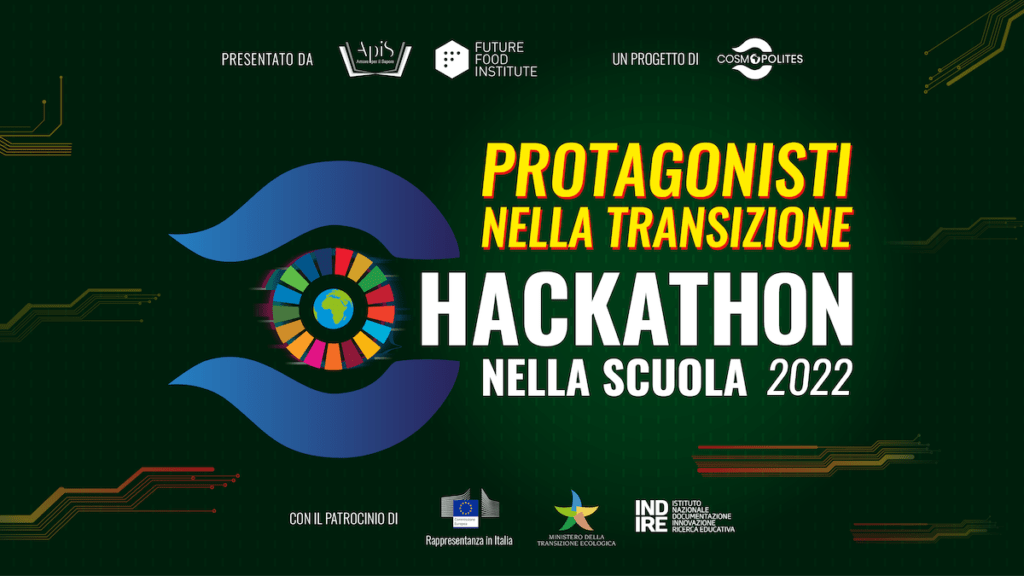Is it possible to (re)build and (re)design the future, a fairer, more equitable, healthier, more sustainable future by learning from the mistakes of the past?
Is it possible to transform necessity into possibility, or challenge into stimulus to reconnect people and ideas through common values, reaffirming the need for civic sense and collective well-being, regenerating the social, economic, educational and environmental fabric?
The beauty and richness of our country, made up of natural, landscape, geological, and food diversity, embellished by the cultural heritage that we carry with us, by the skill and knowledge that is handed down from generation to generation, from the inner villages to the largest Italian cities, must be preserved and protected. An ecological transition that today is more than ever necessary given the context of exceptional environmental, climatic, energy, health, food, and human emergencies, must be supported by a school system capable of raising awareness and empowering, adequately preparing the citizens of tomorrow for current challenges, valuing their knowledge and expertise, without the need to force them to flee abroad.
This is the goal of the Hackathon in the School.
Created and led by Gabriele Laffranchi and Amore per il Sapere, with the support of Cosmopolites and the Future Food Institute, the Hackathon in the School is a two-day marathon which, directly from the classrooms of Italian schools, will involve third year high school students, together with their teachers, and a large team of trainers, facilitators, innovators, and experts to support young hackers to face and solve real problems of the present.
- Social inclusion: How could we imagine good practices of inclusion in which the uniqueness of each becomes a contribution for all?
- Wood: How to promote a strategic use of wood, as a sustainable resource for the environment and the economy?
- Water: How to save water at home?
- Social innovation: How to create shared value for young people focusing on schools and meeting spaces?
- Food: How to communicate local food to the new generations and promote ethical and sustainable consumption?
- Work: How to imagine the work of the future through the experience of the game?
- Integral Ecology: How to move towards a more sustainable future for people and the environment by promoting an integral ecology?
- Network: how to create a network among school communities to create value in the area?
These were the eight challenges that children worked to hack by implementing new skills and methodologies: co-petition, aimed at collective well-being, the exchange of ideas, listening, openness in diversity, teamwork, the need to prototype, test, try, validate, make mistakes, restart, recreate. But also the possibility of having mentors and experts with them for every challenge to ask, investigate, and further test their ideas: Mygrants, Italian Network for Euro-Mediterranean Dialogue, Rilegno, Italian Forestry Association, Finish, Legacoop Emilia-Romagna, Barberini Foundation, Innovacoop, Almavicoo, Coldiretti, Campagna Amica Foundation, Day, Italian Association of Corporate Welfare, the International Coalition of Inclusive and Sustainable Cities,
Because a true transition, to be regenerative, is either collective or it simply doesn’t happen.
This is what is still too often lacking in the current school system: the ability to restore a lively, real, active, effective, proactive, challenge-based learning environment. A school that not only provides answers, but that stimulates critical thinking, curiosity, creativity, sensitivity, making our children true protagonists of change.
This is and should be the foundation of civic duty, educating students to live in respect of the community, developing environmental and social responsibility and which today most Italians believe should come primarily from schools at an institutional level, according to the report, Civicness.
The Hackathon in the School began with more than 500 students, professors, mentors, and experts connected from Tokyo to New York to become protagonists of the transition.
Now is the time for action. Now is the time for Regeneration!

